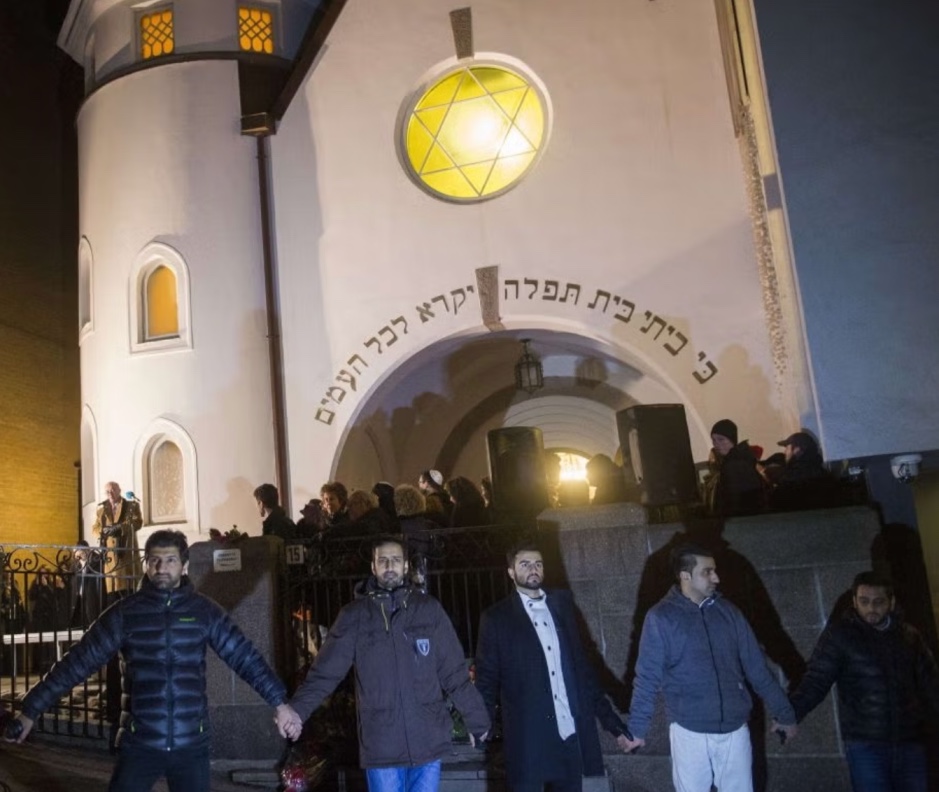
I don’t know who it was that spread the joke that the developed countries of Northern Europe, which rank first in quality of life, governance and management – Norway included – are successful because they apply the ‘true Islam’ which we have abandoned.
BY AHMAD ASID
ACTUALLY THE FIRST CONTACT of Muslims with the model of the modern Western state during the nineteenth and early twentieth centuries was characterised by a sense of shock in some travelers, for these said when describing Western society: ‘I saw an Islam without Muslims.’ It is the same idea that Islamist movements are reproducing today, more than a century later in distance in which Muslims have failed to build a successful model for renaissance and growth.
Such statements today reflect the misery of contemporary Islamic consciousness and its inability to see reality. For these justificatory ideas form a veil hiding many truths. The first of these truths is that instead of acknowledging the failure of political Islam and acknowledging the necessity for secularism, as embodied best in the northern European countries, the Islamic trend (which has failed in everything) does the exact opposite: it steals the successes of others and attributes them to its own faith.
The Islamic trend steals the successes of others and attributes them to its own faith.
Secondly, what these people are aiming at with these expressions is promoting the victory of the faith, not promoting these successful models and the reasons for the renaissance of these developed countries. The two are interlinked and it is for this reason that Islamists have succeeded in spreading religiosity but never in spreading science, knowledge, freedoms and human values.
Thirdly, they call for honesty, justice, doing good, a balanced distribution of wealth, economic governance, cleanliness, the avoidance of waste, the rotation of government, the separation of powers, and the supremacy of the law and equality of all before it – they want all of this as something pre-existent in Islam, yet they are unaware that all of these things are organically linked to other values that they reject.
So there are two major dilemmas facing them:
1) These positive principles and values are organically linked to other values: namely the complete equality between men and women and equality among all citizens regardless of any differences in colour, sex, creed, race and family descent. They are also linked to other values such as individual and collective freedoms: the especially the freedom of belief, thought, and expression and of the press, the freedom to choose a lifestyle, and the principle of respect for the other, all of which form the essence of the Western secular system. Do these values also exist in Islam? If they do, why do they fiercely oppose them and abhor them? Either they do not understand Islam, or Islam does not actually include those values that form the basis of the renaissance of the developed West.
2) Islam undoubtedly has noble values, but these in turn are organically linked to a value system that includes other values opposite to the these values, a system that in turn is linked to a earlier civilisational and social context that no longer exists. The basis of this context is what we may call ‘internally conflicting verses and hadiths’, which emerged in different circumstances, later to be lumped together in books without there being any means to decide how to choose between them, given that they were all placed there to be adopted according to need.
All of this turned Islam into a framework both for justice and for its opposite, for equality and peace and their opposites, for tolerance and its opposite, for science and its opposite. This has served to mire Muslims in contradictions to this day. It leaves them unable to shed the old jurisprudence and engage in a reading that allows them to choose values that suit their time and leave the rest behind for their being associated with a defunct society and state. Such a new reading could have embraced all that achieves goodness, peace, equality, justice and civilizational progress, just as it is in successful countries, as precisely something that God had intended with His wisdom.
Do these values also exist in Islam? If they do, why do they fiercely oppose them and abhor them?
Let us do a simple mental exercise so that our Islamist fellows can grasp the predicament they are in as a result of their skewed way of thinking.
Suppose we go along with what they say and agree with them on applying a ‘Norwegian Islam’, something we could only enthusiastically call for. We would see that the first beautiful thing upon which their renaissance has been based is freedom and the complete equality among citizens without discrimination, to the point that women occupy half of the offices of state.
At this our Islamic brothers will undoubtedly hum and ha and say “we are Muslims, not Norwegians”, and “we have our religious ‘peculiarities’ and ‘our ancient traditions’ and ‘unalterable things’ that constitute the ‘constant characteristics of the Nation” – which make it impossible to apply the principles of equality as they exist in Norway. What they fail to notice in this regard is that the renaissance that they admire and label as ‘Islam’ in Norway arose from the energies unleashed by the dynamism of women working alongside men, and that the equality that pertains in successful northern societies is the basis of their social dynamism and the credibility of their institutions and laws.
Another exercise: Norway has an official religion in the constitution, although it is not considered to be the source of legislation, and the state does not impose this religion on its citizens, nor does it monitor it or employ it in politics, or to discriminate or differentiate between citizens. In the educational sector it recognises all the religions that are practiced on its territory, including Judaism, Christianity, Islam, Buddhism, Baha’i and others, so that Norwegian children respect all those who adhere to those religions in their country. Children are not forced to follow a particular religion, but instead freedom of choice is granted to them as and when their psychological and mental maturity is complete, when they reach the age of eighteen. This is because the educational system there is based on the principles of freedom and creativity, not tradition and repetition.
Our Islamic brothers will say: “But Islam is the final and finest of religions, all the religions that came after it are invalid, and all those religions that predate it have been distorted. Islam alone is the ‘true religion’, so how can we in our schools recognise distorted religions and force students to respect them while their adherents are infidels?”

Suggested Reading
The problem, which constitutes an epistemological impediment in Islamist thought, is embodied in their inability to understand the comprehensiveness of this successful Western societal system, one that is the fruit of a long historical process of development, and which has progressed from slavery to liberation, from tyranny to justice, from superstition to rationality, from ignorance to science. The Islamists may be happy to have good governance, the equitable distribution of wealth, effective administration and the rotation of power as in the West, but they want all of this without gender equality, without freedoms and without the separation of religion and state, even though these things are vital to achieve them. Were it not so, the Islamists could have achieved them in their own countries, both in the past and in the present day.
The ‘Norwegian Islam’ is therefore nothing if not a system based on universal human values, values to which all human civilizations without exception have contributed, the same values that are shared by all successful countries, while Muslims on the other hand deny them, do not tolerate them, and fight against them daily in their schools and in their media as something that seems alien to their ‘authenticity’. It is for this reason that they remain backward.
Main image: Progressive Muslims in Oslo protecting a synagogue in February 2015 following an Islamist extremist attack.
